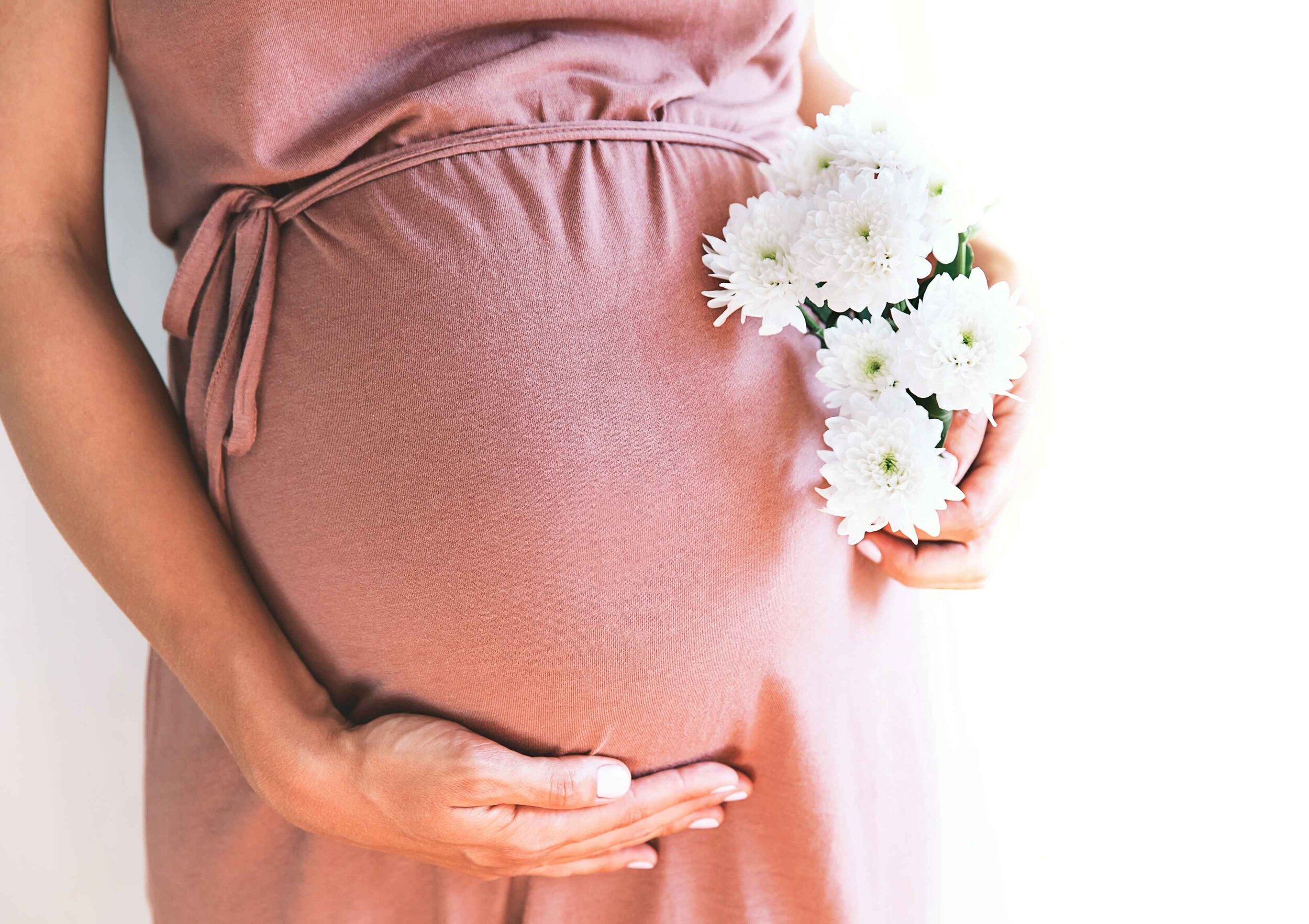Essential Oils to Avoid During Pregnancy
Essential Oils to Avoid During Pregnancy
It’s no secret that pregnant women have it tough. Between the perils of morning sickness, the hellscape known as heartburn, and killer cravings, pregnancy can feel more like torture than a time of joy and bliss. So, it’s no wonder women (and their spouses) are willing to do just about anything to find some sense of relief.
Diffusing essential oils, ingesting oils or applying them directly to your body are a popular way to treat everything from headaches, nausea, anxiety, and even stretch marks. But like many moms-to-be know, there are just some things you should avoid during pregnancy, and essential oils are no different, despite their organic origins.
Are essential oils safe while pregnant?
When used as recommended or safely diluted in skincare products, there are plenty of essential oils that are perfectly safe to use while pregnant. While some concern has been raised about essential oils entering a pregnant mother’s bloodstream, this can easily be avoided by following the appropriate application methods and dilution rate.
First Trimester
Though more research is needed to say for certain, most medical professionals will advise against using essential oils in a diffuser or directly on skin during the first trimester of your pregnancy. In rare cases, essential oils can cause uterine contractions, which are potentially harmful to the baby during its early stages of development.
Second & Third Trimesters
During the second and third trimesters of pregnancy is when most essential oils are safe to use. If you intend to swap your Tylenol for some lavender oil, it’s best to be sure that the oils you’re using are 100% pure, and from a reputable supplier. You should only use your oils topically, and avoid ingesting them, as this can put your fetus at serious risk. We recommend sticking with essential oils that are already diluted in skincare products for safest usage.
Essential oils safe for pregnancy and breastfeeding
If you’re agonizing over pregnancy, essential oils can help a great deal and have many aromatherapy benefits. Chamomile and ginger can help soothe and calm nausea, while lavender and ylang ylang can be used to relieve muscle aches and tension. Once you’ve reached your second trimester, the following essential oils are safe to use diluted in skincare products:
● Bergamot
● Roman chamomile
● Eucalyptus
● Geranium
● Ginger
● Grapefruit
● Lavender
● Lemon
● Lemongrass
● Lime
● Mandarin
● Neroli
● Patchouli
● Petitgrain
● Rose Otto
● Rosewood
● Sandalwood
● Sweet orange
● Tea tree
● Ylang ylang
Essential oils to avoid during pregnancy
On the other hand, there are some essential oils that moms-to-be should avoid throughout the duration of their pregnancy. Some of your favorite scents might just fall on this list, like cinnamon or nutmeg.
● Basil
● Birch
● Bitter almond
● Cedarwood
● Cinnamon
● Clary sage
● Clove
● Coriander
● Deer Tongue
● Fennel
● Horseradish
● Juniper berry
● Mugwort
● Mustard
● Nutmeg
● Origanum
● Parsley
● Pennyroyal
● Pine
● Rosemary
● Rue
● Sassafras
● Savin
● Savory
● Tansy
● Thyme red
● Tonka
● Wintergreen
● Wormwood
Tips for using essential oils while pregnant
1. Avoid ingesting essential oils
The most important rule to remember for using essential oils while pregnant is not to ingest them orally. While this is a point of contention for essential oil enthusiasts, we don’t recommend ingesting essential oils under any circumstance, even when not expecting. It’s believed that once within the bloodstream, essential oils can metabolize to form alternative chemical compounds that can jeopardize your health.
2. Use as aromatherapy
Don’t get us wrong, we know how handy an essential oil rollerball can be for packing in your purse or diaper bag. However, if safety is a serious concern of yours, it’s best to use essential oils for aromatherapy. Find body care products that include essential oils that are already diluted. You’ll get the aromatherapy benefits of the essential oils without the safety concerns.
3. Dilute your oils
As previously mentioned, it’s recommended that you only use essential oils topically and properly diluted. You can do this by buying essential oil based skincare or diluting the oil in a carrier oil. Carrier oils are other naturally derived oils whose job is just as it sounds𑁋to deliver oils safely to your skin. If you are diluting oils yourself make sure you check the recommend dilution % to safely use your essential oils. Some examples of carrier oils that can be safely mixed with essential oils are:
● Almond oil
● Apricot oil
● Argan oil
● Avocado oil
● Black seed oil
● Coconut oil
● Jojoba oil
● Olive oil
● Rosehip oil
● Sunflower oil
4. Use essential oils only as intended
At the risk of sounding redundant, it’s crucial that you only use your essential oils as intended. If you choose not to follow the instructions for use, you not only risk your child’s health, but also your own. And even if nothing seriously concerning happens, there’s a good likelihood that you’ll at least experience some discomfort. Pregnancy is already an adjustment as it is, so you don’t want to run the risk of causing yourself further inconvenience.
Final thoughts on using essential oils while pregnant
The fact of the matter is, everyone’s body reacts to pregnancy differently. Some will suffer greatly, while others only experience mild symptoms. But it’s safe to say that every expectant mother will seek some sort of relief during the duration of her pregnancy. Be it a migraine headache, persistent nausea, sleep deprivation, or even hemorrhoids, essential oils are becoming an increasingly popular remedy. As with anything you’re using to treat pregnancy ailments, consult with your doctor before turning to essential oils. Most physicians will give you the green light without hesitation, but it’s always best to check with a medical professional.








Use this handy DIY essential oil recipe to create a burn serum to help calm and soothe skin.